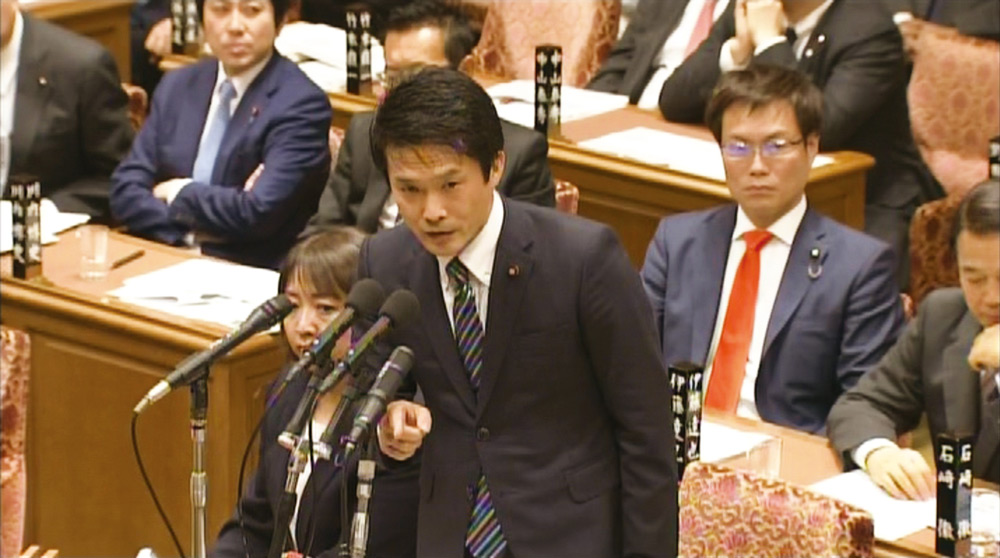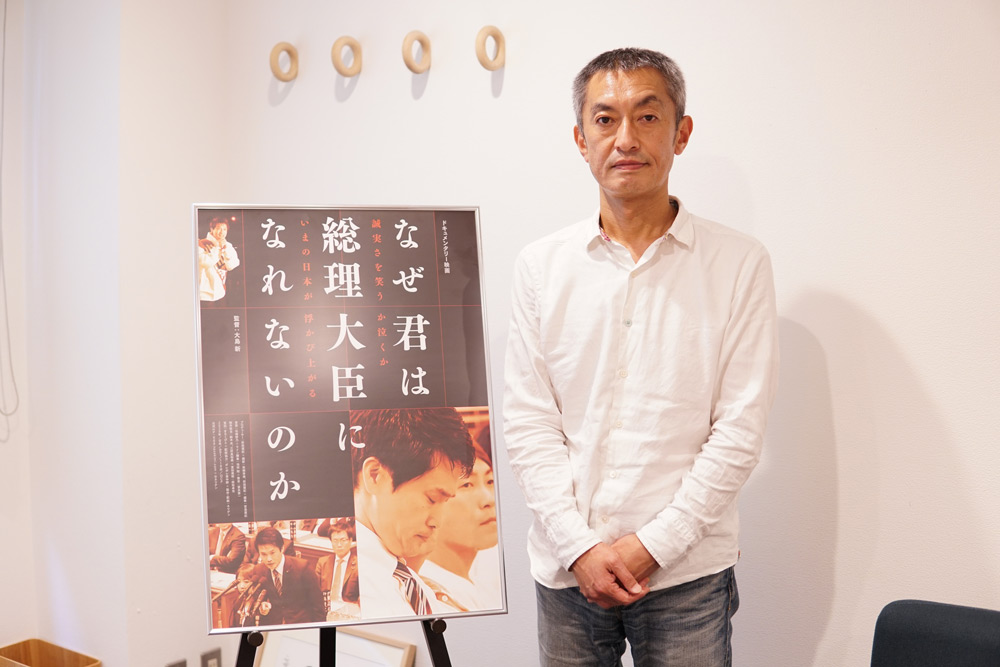!["Why Can't You Become Prime Minister?" Director Arata Oshima A rare politician documentary that has reached a high level of entertainment [Director's Interview Vol.63]](https://cinemore.jp/images/d3bc4e60ac585ac9f4216d7e7870ec4e9a57b7772bb8aa6d1af0be61aeb03b45.jpg)
"Why Can't You Become Prime Minister?" Director Arata Oshima A rare politician documentary that has reached a high level of entertainment [Director's Interview Vol.63]
Why is it difficult for politics to become entertainment in Japan?
Q: After watching this film, I was struck by the question of why politics is not covered more as entertainment in movies and television in Japan. In America, there are some risqué but excellent feature films, such as ``Vice'' (18).
Oshima: In Japan, there was a movie called “The Journalist” (2019) last year, and the difference between that and “Vice” is the difference between movies that deal with politics in Japan and America. It may be rude to say this, but as far as entertainment goes, it can't be compared to Vice. This includes deciding whether or not to draw using my real name. Japan is still bad.
Also, regarding the lack of documentaries dealing with Japanese politics, one of the reasons is that TV reporters monopolize interviews with politicians. I've always wanted to do a TV show about politicians, too. But when I was at Fuji TV, I wasn't affiliated with the news department, and even more so when I became a freelancer, I couldn't get close to politicians at all.
When my wife told me that an acquaintance of mine was running for office, I thought, ``Oh, maybe I can interview someone who is running for office for the first time.'' He has not yet become a politician. People who are already in Nagatacho can basically only cover reporters with fixed shifts, and freelance directors have no access.
Q: When I am making a program myself, I feel that Japan's reporter and press club system has many negative effects.
Oshima: That's right. So when it comes to visual expression, I feel like each station's political department culture has become poor.

Q: Under such circumstances, were you conscious of any ingenuity in making the movie so that more people would see it?
Oshima: When it came to making the movie, I stopped thinking about it much halfway through. This is because I always carry out the editing process to some extent with myself and the editor, and then show it to the producers and other film staff along the way. Once it's pretty solidified, I ask a lot of people who aren't involved in the movie at all to see it and get their opinions. Then, some people can't keep up with the content to the point where they pass out in the middle of the movie.
Q: I see. That's surprising.
For example, Shiro Tasaki (a political journalist) appears in the story, but there are people who don't know him in the first place. Like, “Who is this person?” Well, if you start with "What kind of person is Shiro Tasaki?", there's nothing you can do about it. That's why I don't follow up on those customers.
Usually, when I'm making a TV show, I have this obsessive feeling that I have to make it easy to understand, so I feel like, ``At least let me do something interesting, like a movie!'' . But since I want to serve my customers, I thought it would be a good idea to do it in a way that would broaden the range of customers just a little bit, while keeping the basic idea that I am interesting.
Q: Please give a Arrival from the director to those who will be watching your work.
Oshima: First of all, the best thing is for you to enjoy it as a work. The good thing about documentaries is that everyone watches it with their own background in mind, so if 100 people watch it, there will be 100 different opinions. I think some people see it as a story about a man who is being manipulated by the convenience of an organization and has a hard time, while some people find the family scenes to be very much about their own home. I would be happy if people could see me in that way.
I would also like it to be used as an accompaniment to drinks while discussing politics. Recently, there has been a lot of political news, such as the Tokyo gubernatorial election and the arrests of Katsuyuki Kawai and his wife Anri. I think it would be great if this movie could be used as an accompaniment to alcohol to help people talk about such things.

Director: Arata Oshima
Born in 1969 in Fujisawa City, Kanagawa Prefecture.
After The Graduate from Waseda University's Faculty of Letters in 1995, he joined Fuji Television. He is the director of documentary programs such as ``NONFIX'' and ``The Nonfiction.'' After leaving Fuji Television in 1999, he became a freelancer.
He has directed MBS's ``Jonetsu Tairiku'', NHK's ``Extracurricular Lessons Welcome Senpai'', and ``When I Was a Child''.
In 2007, he directed the documentary film ``Theatrical Karajuro and the Record of the Karagumi Gekidan''. The film won the Documentary Award at the 17th Japan Film Critics Awards.
In 2009, established the video production company Netsugen.
In 2016, he directed the movie ``The Creature Named Sion Sono''.
Produced works include ``Creating Curry and Rice from Scratch'' (2016) and ``I'm a fool, so please help me.'' (2018), etc.
He regularly contributes documentary reviews to Bunshun Online.
Interview and text: Tetsuya Inagaki
TV director. My personal goal is to realize a documentary project that depicts the obsessions of manga and movie creators. Programs he has directed in the past include ``The Godfather : The Man Who Revolutionized Manga'' (WOWOW), ``Takeshi's Birth: Master and Asakusa'' (NHK), ``Master and Disciple Story: The Encounter That Changed My Life'' [Masahiro Tanaka x Katsuya Nomura ] (NHK BS Premium).
"Why can't you become prime minister?"
From Saturday, June 13, 2020
Pole Pole Higashi Nakano, Human Trust Cinema Yurakucho and other nationwide road shows
Production/Distribution: Netsugen (C)Netsugen

